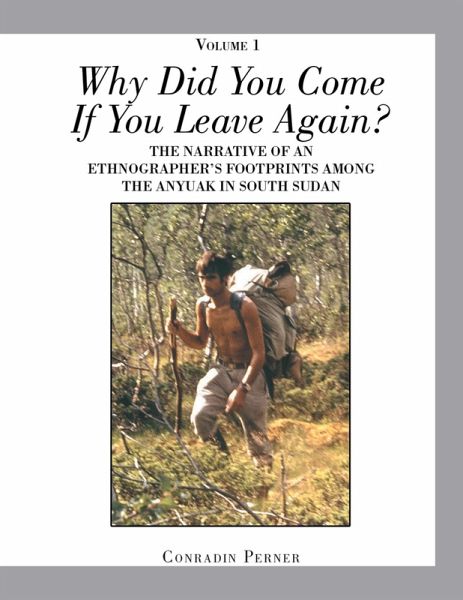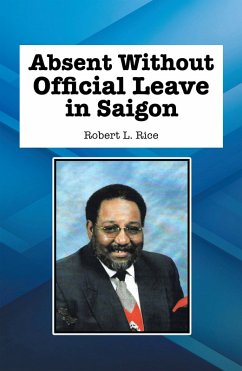
Why Did You Come If You Leave Again? Volume 1 (eBook, ePUB)
The Narrative of an Ethnographer'S Footprints Among the Anyuak in South Sudan

PAYBACK Punkte
1 °P sammeln!
The book Why Did You Come If You Leave Again? is an ethnographers personal account of the five years he spent in one of the remotest parts of Africa. In the authors comprehensive monograph (eight volumes published by Schwabe) about the Anyuak, a little-known tribe in South Sudan, there was no space left for a portrait of the person who did the fieldwork, his professional and personal itinerary, his experiences and attitudes, his relationship with the local peoplelet alone for all the adventures he lived when crossing the wilderness and when struggling to stay alive.The travel autobiography she...
The book Why Did You Come If You Leave Again? is an ethnographers personal account of the five years he spent in one of the remotest parts of Africa. In the authors comprehensive monograph (eight volumes published by Schwabe) about the Anyuak, a little-known tribe in South Sudan, there was no space left for a portrait of the person who did the fieldwork, his professional and personal itinerary, his experiences and attitudes, his relationship with the local peoplelet alone for all the adventures he lived when crossing the wilderness and when struggling to stay alive.
The travel autobiography sheds light on the long and tedious process of ethnographic fieldwork; it is both personal and profound, varying between moments of actions and reflections and eventually leading to an intimate encounter with an African culture. The many riveting stories told in the book are signposts of a spiritual, psychological, philosophical, and physically exhausting expedition through arid savannah, flooded plains, and compact walls of elephant grass to the spiritual home of a courageous people who have created in the middle of wilderness a center of humanity. Though the narrative is essentially about the discovery of a foreign culture, it also relates the exploration of the ethnographers own identity in an environment that didnt offer any possibility to escape.
The book is about thirst, starvation, loneliness and lightening, sickness and death, joy and deliverance, snakes and spirits, shadow, spittle and footprints, and eventually about the authors quest for meaning, beauty, and understanding of the world. The memoir tells a saga about forlornness, hope, and achievement, and last but not least, growing friendships as the only reward for struggle and pain. The researchers autobiography is captivating for the soul and the mind. It is funny, sad, informative, inspiring, and poetic.
The travel autobiography sheds light on the long and tedious process of ethnographic fieldwork; it is both personal and profound, varying between moments of actions and reflections and eventually leading to an intimate encounter with an African culture. The many riveting stories told in the book are signposts of a spiritual, psychological, philosophical, and physically exhausting expedition through arid savannah, flooded plains, and compact walls of elephant grass to the spiritual home of a courageous people who have created in the middle of wilderness a center of humanity. Though the narrative is essentially about the discovery of a foreign culture, it also relates the exploration of the ethnographers own identity in an environment that didnt offer any possibility to escape.
The book is about thirst, starvation, loneliness and lightening, sickness and death, joy and deliverance, snakes and spirits, shadow, spittle and footprints, and eventually about the authors quest for meaning, beauty, and understanding of the world. The memoir tells a saga about forlornness, hope, and achievement, and last but not least, growing friendships as the only reward for struggle and pain. The researchers autobiography is captivating for the soul and the mind. It is funny, sad, informative, inspiring, and poetic.
Dieser Download kann aus rechtlichen Gründen nur mit Rechnungsadresse in A, D ausgeliefert werden.













